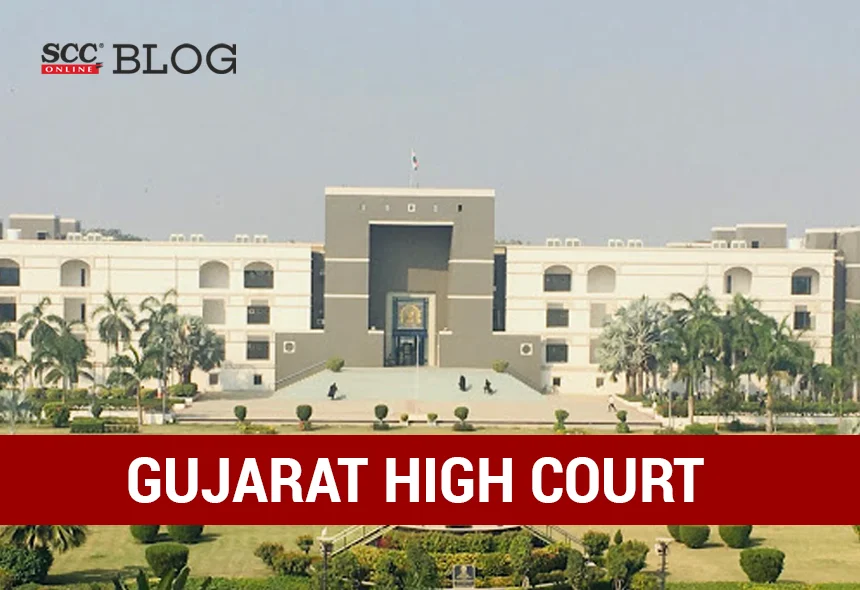Gujarat High Court: While hearing a batch of criminal applications filed by Mehul Chinubhai Choksi and another accused, Director of Gitanjali Group, seeking to set aside and quash the First Information Report (‘FIR’) against him for the offences punishable under Sections 406, 420 and 34 of the Penal Code, 1860, Sandeep N. Bhatt, J. dismissed the application for being devoid of merits.
Factual Matrix
The Divyanirman Jewels floated a Diamond Saving Scheme as well as Gold Saving Scheme floated. On 15-09-2013, the complainant and her husband were informed about diamond/gold monthly installment schemes and that one installment would be borne by the company. Upon the complainant finding the scheme to be good, the complainant and her husband discussed about investing Rs.5000/- per month in the gold coin scheme for 12 months. In July 2014, the complainant received a telephone call from Gitanjali Gems informing them that the franchisee has been terminated. Thereupon, the complainant and her husband went to the store and offered to deposit the remaining three installments and inquired if they could get gold coins or return the installment money. Therefore, an FIR was registered against franchisee owner of Divyanirman Jewels, Mehul Chinubhai Choksi, Managing Director of Gitanjali Group, and other Directors of Gitanjali Group.
Decision
The Court said that Mehul Choksi left the country long ago and he did not cooperate with any prosecution, though various complaints are filed against Gitanjali Gems as well as in his individual capacity. Therefore, the Court said that considering Mehul Choksi’s conduct the present application cannot be entertained qua Choksi as he does not have any respect towards the process of law. Hence, he cannot be considered for any equitable relief.
Regarding the prayer for quashing proceedings against another accused, the Court referred to State of Haryana v. Bhajan Lal, 1992 Supp (1) SCC 335, wherein the Supreme Court had illustrated the cases wherein inherent powers under Section 482 of the Code of Criminal Procedure, 1973 could be exercised either to prevent abuse of the process of any Court or otherwise to secure the ends of justice, as follows:
-
The FIR or complaint do not prima facie constitute any offence or make out a case against the accused.
-
Allegations made, do not disclose a cognizable offence in order to justify an investigation by police officers under Section 156(1) of the CrPC, except under an order of a Magistrate within the purview of Section 155(2) of the CrPC.
-
The uncontroverted allegations made in the FIR or complaint do not disclose the commission of any offence and make out a case against the accused.
-
The allegations in the FIR do not constitute a cognizable offence but constitute only a non-cognizable offence, no investigation is permitted by a police officer without an order of a Magistrate as contemplated under Section 156(2) of the CrPC.
-
The allegations made in the FIR or complaint are so absurd and inherently improbable on the basis of which no prudent person can ever reach a just conclusion that there is sufficient ground for proceeding against the accused.
-
There is an express legal bar in any of the provisions of the CrPC or the Act concerned (under which a criminal proceeding is instituted) to the institution and continuance of the proceedings and/or where there is a specific provision in the CrPC or the Act concerned, providing efficacious redress for the grievance of the aggrieved party.
-
The proceedings were maliciously instituted with an ulterior motive for wreaking vengeance on the accused and with a view to spite him due to private and personal grudge.
The Court also referred to CBI v. Maninder Singh, (2016) 1 SCC 389, wherein it was held that ‘the inherent power of the High Court under Section 482 of the CrPC should be sparingly used. Only when the Court comes to the conclusion that there would be manifest injustice or there would be abuse of the process of the Court if such power is not exercised, the Court would quash the proceedings. In economic offences Court must not only keep in view that money has been paid to the bank which has been defrauded but also the society at large’.
The Court said that in the present case, prima facie, the ingredients of the alleged offences were satisfied against the other accused, Director of the Company and hence, the complaint was required to proceed further. The Court said that it was found that after giving false promises through their franchisee, such showrooms were closed down and the customers who invested their money were cheated. The Court noted that the showrooms of the company in the respective cities were closed down. The Court explained that due to such a fraudulent act and closure of the showrooms the money invested by the people was not refunded and hence, a huge scam was committed. Therefore, the Court said that the ultimate liability can be fastened on the shoulders of the persons responsible for the affairs of Gitanjali Gems and present accused persons being the Directors and actively involved in the management of the company cannot shirk their responsibility.
Thus, the Court refused to exercise the power under Section 482 of the CrPC since the accused person failed to make out their case. The Court dismissed the criminal applications for being devoid of any merits.
[Mehul Chinubhai Choksi v. State of Gujarat, 2023 SCC OnLine Guj 3624, order dated: 11-10-2023]









